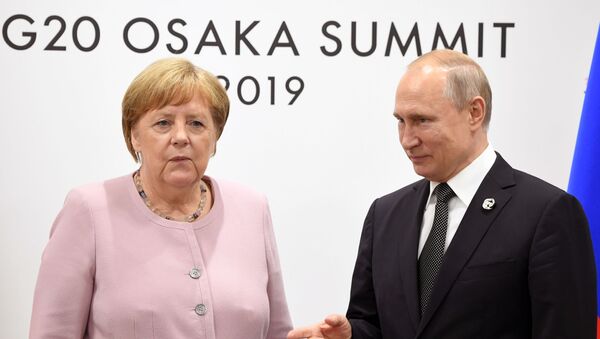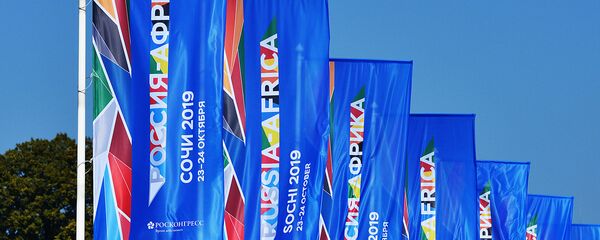German Chancellor Angela Merkel called on the country's parliament on 27 November to review its stance on weapons sales restrictions in order to enable arms supplies to African countries, namely in the Sahel region to the south of the Sahara desert. She argued that their success in this field is directly linked to Germany's security, calling it "one of the most serious problems we face at the moment".
Berlin has been helping Mali to combat terrorist groups since 2013, deploying its own troops the country. Merkel stressed that while Germany is training the military in African countries to fight the terrorist threat, it has failed to provide them with the means to do so – namely weapons. But the security of African countries, however, was not the only thing causing her concern.
"I ask myself, is it in our interest if Africa is armed by Russia, or perhaps China or Saudi Arabia? I don't think we can encourage stability and peace in Africa, yet refuse to supply any arms. We cannot train people who have to fight terrorists, only to say it's up to them to see where they get their weapons", the chancellor stated.
Germany, along with France, has also been pushing for the establishment of another mechanism to sell weapons to African states, via a so-called European Peace Facility, which is conceived as a separate EU "budget". Its details remain a mystery, but the initiative already has opponents, according to the media outlet EUobserver.
The media names Denmark, Malta, and the Netherlands as staunch opponents. Sweden has its concerns regarding the European Peace Facility in the field of security, to prevent the weapons from making it to the black market or into the hands of militants. Ireland also reportedly opposes the idea, but is allegedly keeping mum in order not to lose the support of France and Germany in Brexit affairs.
Russia's Push for Africa
Russia has recently been putting Africa at the centre of its foreign policy. Russia sent military advisers to the Central African Republic (CAR) to help it cope with an ongoing civil war by training its military forces in 2018.
In October 2019, Moscow organised the first Russia-Africa forum in Sochi, visited by the majority of African countries. Russia has long been known by African states as a reliable weapons supplier, covering a significant part of sales in this sphere on the continent, and the forum apparently renewed their interest.
Nigeria signed a deal to buy 12 MI-35 attack helicopters from Moscow, while a number of other states discussed the possible procurement of other types of weapons. Russia has also been selling weaponry to CAR since the UN granted permission to do so in 2017.




